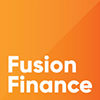
Fairness opinions are reports provided by an independent third party that determine whether the price paid for a certain transaction is reasonable. While fairness opinions are common for public company buyouts, they are increasingly used by private companies during mergers and acquisitions.
For private technology companies, here are four situations that increase the likelihood that the board of directors will require a fairness opinion for a strategic transaction.
Target Has Current Losses or is Difficult to Value. Profitable companies are easier to value. If a company is losing money, the analysis is more dependent on the medium and long-term business outlook, as well as the value of the company’s assets and intellectual property. Quantifying these items is a nuanced process that requires a detailed understanding of the business, industry, strategy, intellectual property, merger rationale, and the risks and opportunities associated with integrating the two companies and scaling the business post-acquisition.

Target is in a Different Line of Business vs. the Acquirer. Many acquisitions are designed to open new markets, products, business opportunities, or to add new customers for the acquiring company. Understanding the value of the new business line is key to evaluating the impact of the acquisition on investors. A fairness opinion in this situation will quantify the expected benefit and costs of the target’s operations, opportunities to cross sell both sets of products and services, efficiencies across back office or technology infrastructure, and how the new entity adds to overall growth in revenue and cash flow.
Significant Synergies Required to Justify the Fairness of the Acquisition. Synergies can include new revenue opportunities that are available post-acquisition, as well as cost reductions due to overlapping infrastructure, vendors, or resources. They can also result from increased purchasing power and negotiating leverage with suppliers. A fairness opinion will analyze the realistic benefit from each synergy opportunity and quantify the value and its contribution to the purchase price. There are often a range of views related to the benefit of merger synergies for a given acquisition. A fairness opinion provides an independent perspective on this key component of the transaction.
Material to the Acquirer. If the amount of compensation paid to the target is a material sum relative to the acquiring company’s value, a second opinion on the fairness of the acquisition is often required. Generally, the higher the price of the target as a percent of the acquirer’s valuation, the more likely it is that the board will obtain a fairness opinion. The acquisition, and how it performs, can materially impact existing investors.

When selecting a financial advisor to provide a fairness opinion, be sure to work with a firm that is not just a valuation expert, but that also has substantial experience structuring, negotiating, and closing M&A and financing transactions. The advisor must be familiar with the documents, the various transaction types, the different components of the capital structure, multiple classes of stock, and the economic benefits and risks of the provisions in the agreements. The analysis associated with providing a fairness opinion extends beyond traditional valuation and includes an enhanced level of due diligence, transaction structure review, economic impact, and an ability to look at the acquisition from multiple perspectives and understand how well the components fit together. Investing in this analysis and perspective is increasingly common for boards of privately held technology companies.
About the Author: Jeff O’Brien is President and Founder of Fusion Finance. The company provides fairness opinions, valuations and M&A advisory services to clients in the technology, media and telecommunications sectors. Learn more at fusionfinance.com.
